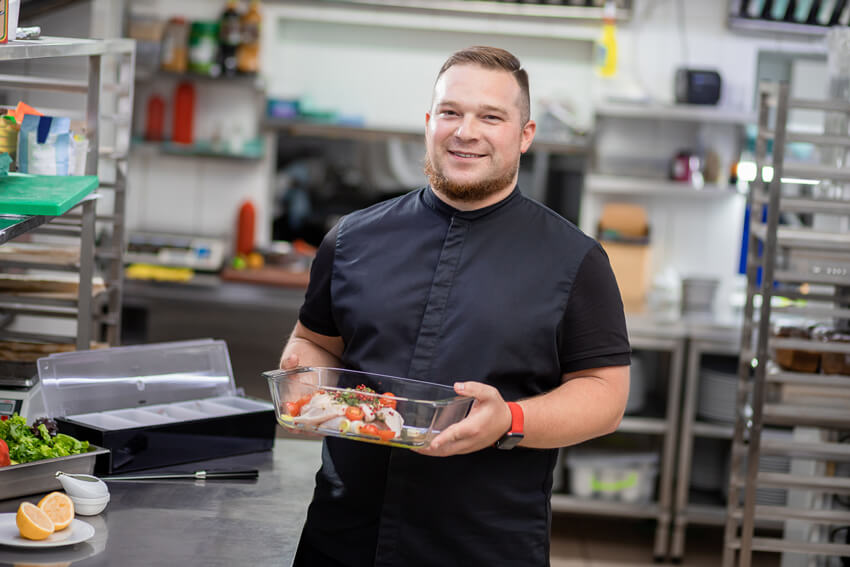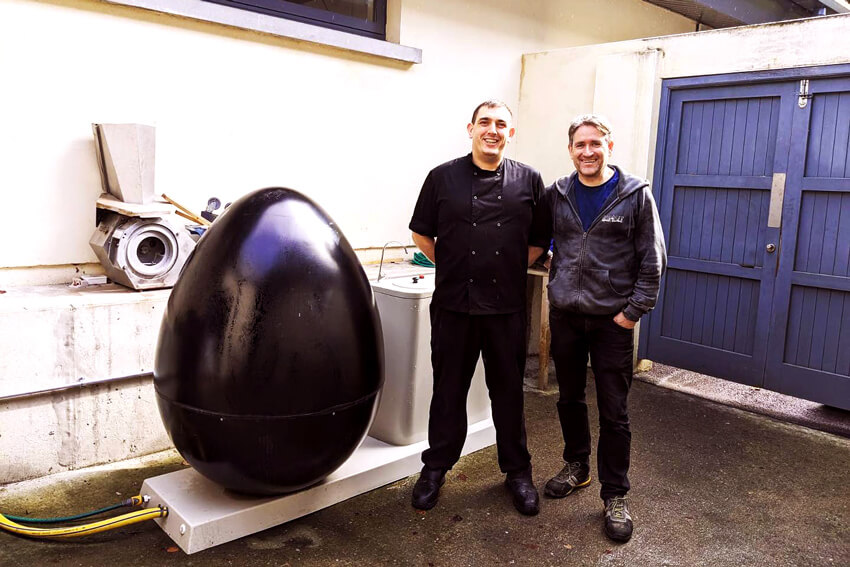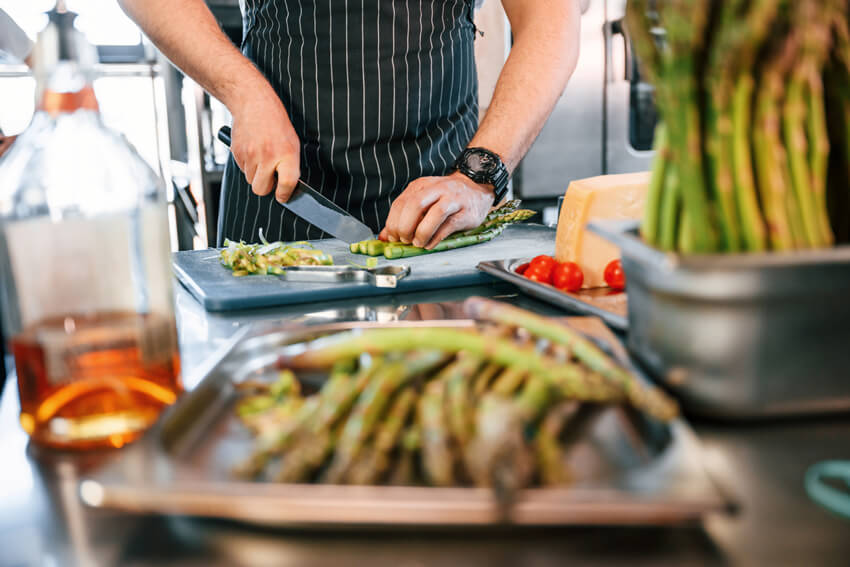
Is your business a food waste champ? Check these 11 strategies to find out
In today’s increasingly eco-conscious world, your customers expect you to do your part to reduce food waste and contribute to a more sustainable future. To help you gauge your efforts, we’ve put together 11 essential strategies that can help you tackle your food business’s waste like the pro you already are.
So how many of the following are true for your food business?
1. You’re on top of measuring food waste.
Because it’s hard to fix a problem you haven’t got the measure of.
Following a reliable method (like the one the Environmental Protection Agency recommends) helps you to keep tabs on food waste volumes.
By figuring out how much waste you’re dealing with, you can zero in on the avoidable stuff and come up with targeted strategies to reduce your business’s overall food waste output.
2. You’ve calculated your Food Waste Benchmark.
You’re not just measuring food waste – you’ve also calculated your food waste per cover benchmark.
Simply divide total food waste in grams by number of covers, and voilà! Now you can assess how your business stacks up against the average Food Waste Benchmark which is 263 grams of food waste per cover for full-service restaurants in Ireland.
With your benchmark nailed down, you’re set to establish goals that make sense for you.
3. You’ve also calculated your food waste cost per year.
You’ve done the maths and figured out how much food waste is eating into your budget each year.
Multiply total food waste in kilograms by the average cost of €2.82 per kilogram, and you’ve got your number. Now you can focus on slashing your food waste grams per cover and enjoying how those savings add up.
4. Like a food waste detective, you’ve identified the biggest culprit.
You’ve reduced your business’s food waste by tackling the worst offender first.
As you know, food waste can (and does) crop up from multiple sources:
- Outdated or unused stock
- Spoiled foods
- Food left on customers’ plates
- Food wasted in preparation
- Improperly prepared food
- Unserved food…
You know exactly where to focus your efforts because you’ve analysed which source generates the most waste in your business. So you can maximise the impact of your waste minimising efforts.
5. Your whole team is on board with the food waste fight.
Not just your chefs and cooks who come into the most contact with food. Your team’s commitment to reducing waste extends beyond the kitchen.
Front-of-house staff help customers make informed decisions about what is/isn’t too much food and even offer to box up leftovers. Plus, everyone’s talking and sharing ideas, from kitchen porters (who have direct contact with food waste) to purchasers.
You’ve got everyone on your team enthusiastic about spotting opportunities to conquer food waste.
6. Your kitchen organisation is top notch.
Your kitchen team live and breathe the first-in-first-out inventory method. So there’s next to no waste from products going off before they’re used.
You’ve implemented a clear labelling system. And your storage area is well lit showing staff what’s in stock, practically at a glance. Your cold storage is always in tip-top shape, staying well sealed and calibrated to preserve food quality.
As a result, food waste due to disorganisation is of no concern in your kitchen.
7. Your prep cooks excel at avoiding over-trimming.
Which means your cooks make the most out of every ingredient.
Whether working with premium fillets or a humble bag of onions, your team’s knife skills are as sharp as their blades.
They find every opportunity to maximise product yield so little usable food is discarded during prep, and every ingredient delivers maximum value.
8. Food ‘waste’ gets a delicious makeover in your kitchen.
Your team is adept at turning what might be considered scraps into mouthwatering dishes.
Meat and veg trimmings become stock, stale bread turns into breadcrumbs and leftover roast potatoes find new life as soup.
And your team is always on the lookout for new ideas: carrot top pesto, fruit peel vinegar, veg peel crisps… so many ways to experiment.
9. You haven’t overlooked sneaky sources of food waste.
You’ve zeroed in on some less obvious waste perpetrators and found ways to deal with them.
Smaller ramekins for sauces? Check! Half-size portions for customers who aren’t as hungry? You bet! Even switching to smaller milk jugs makes a difference in reducing waste.
These changes may seem small, but they can add up to significant waste reduction over time.
10. Even inedible food waste gets a second chance.
You’re all about finding creative ways to repurpose food waste and keep it from heading to the brown bin.
Like offering bags of spent coffee grounds for customers to use in their gardens. And teaming up with local farms to turn food waste into animal feed or compost.
By connecting with your community, you’re keeping food waste in check and helping to create a more sustainable food scene for everyone.

11. For unavoidable food waste, you’ve got anaerobic digestion as your trusty sidekick.
Despite your best efforts, some food waste just can’t be helped. But you’ve got a secret weapon up your sleeve: anaerobic digestion (AD).
This eco-friendly process uses microorganisms to break down organic materials (like food waste) in an oxygen-free environment. So, with a unit like the Irish-made MyGug installed onsite, your food waste gets transformed into sustainable biogas for cooking and nutrient-rich fertiliser for growing more food.
Talk about turning waste into valuable resources and reducing your environmental impact. Embracing AD is the ultimate way to kick pointless food waste to the curve, once and for all.
How did your food business measure up against these 11 strategies?
If you’re feeling pretty good about your waste management game, brilliant! If not, don’t worry, there’s always room for improvement.
Every little change helps. Not only to make a positive impact on the environment, but also to improve your business’s bottom line and reputation.
But here’s the thing… out of all 11 strategies, there’s one you can’t implement alone: anaerobic digestion. That’s where MyGug comes in.
With a MyGug system, you’ll be able to turn your food waste into valuable resources and boost your sustainability cred like never before. Plus, it’s a great way to prove to your customers that you’re serious about reducing waste and being eco-friendly.
If you want to make a real difference in the fight against food waste, it’s time to get in touch with MyGug.
And keep up the great work. You’re well on your way to becoming a true food waste champion in the industry.
Take charge of food waste. Be a sustainability leader.
Talk to us about turning your site’s food waste into clean energy and liquid fertiliser.
For Food Businesses
For Schools & Colleges
For all other enquiries

